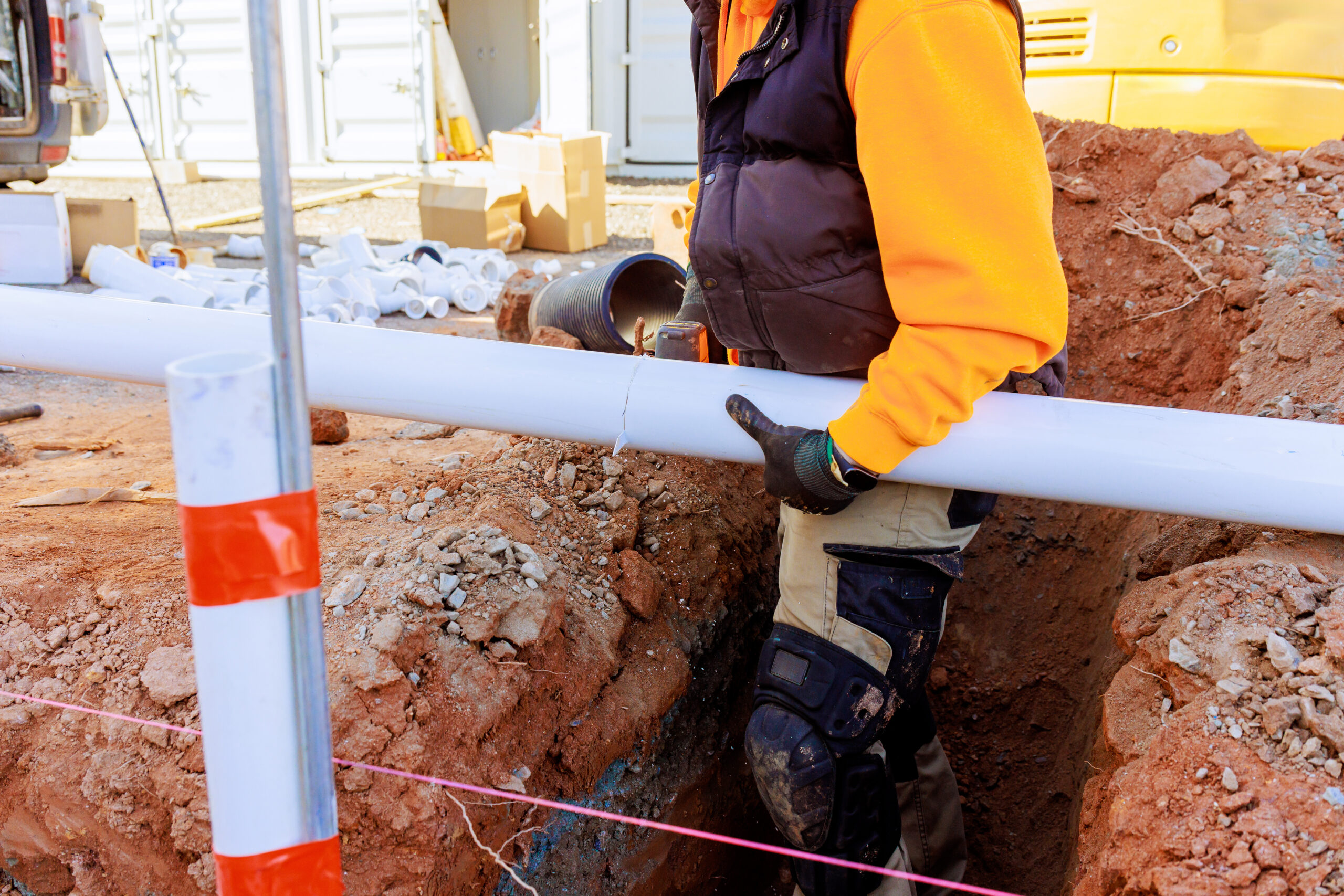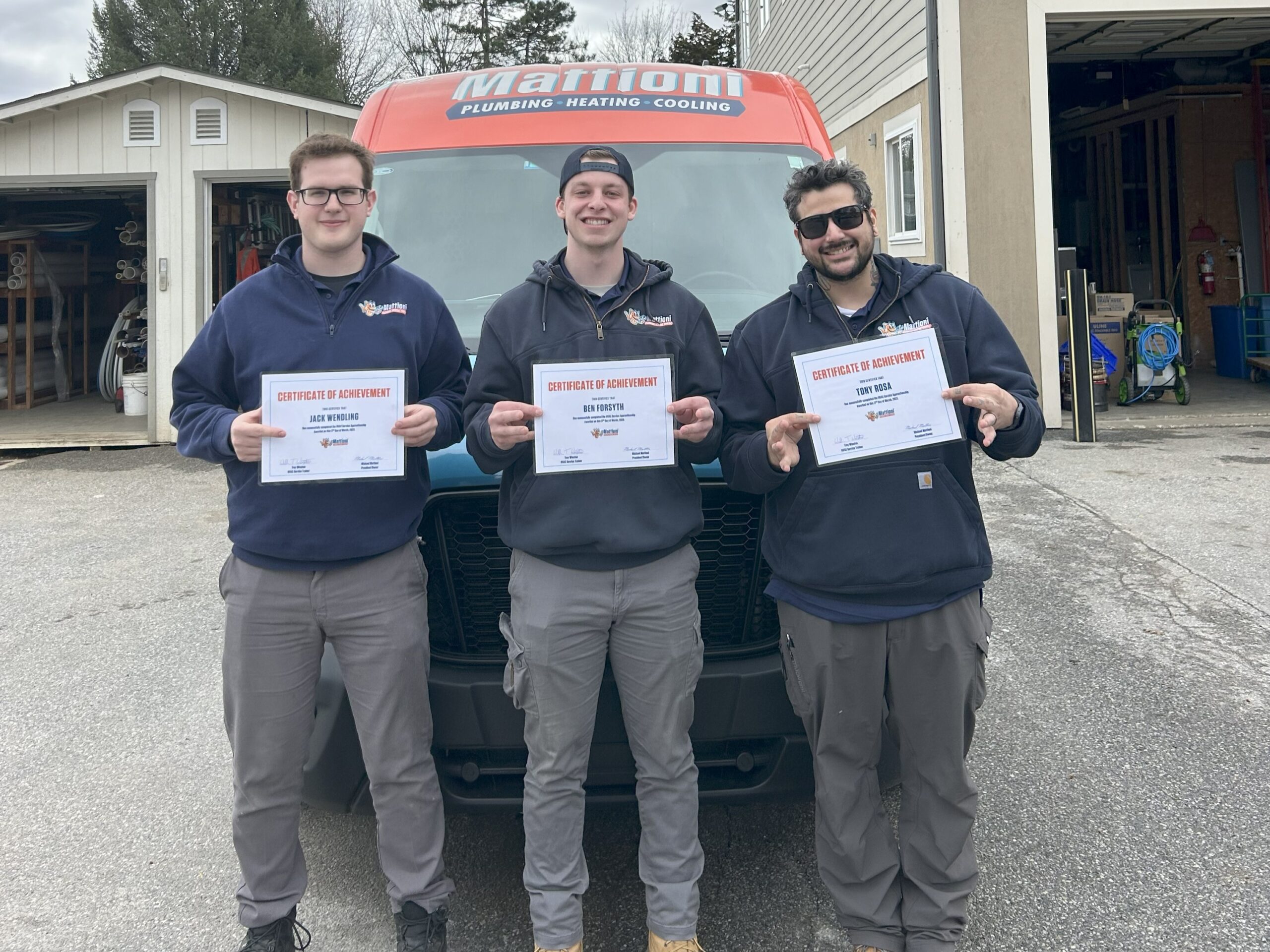|
Getting your Trinity Audio player ready...
|
Last Revised: 5/23/2025
Are you wondering what sewer line material will offer the best longevity and value for your home? If you’re unsure what should guide your sewer line material choice, then you’ve come to the right place.
Installing the wrong sewer line material can lead to costly repairs, water damage, or even full system failure – so getting it right isn’t just smart, it’s essential. On the other hand, the right sewer line material will set you up with a lasting solution that gives you real peace of mind.
Over our 75 years of experience, Mattioni has helped countless homeowners make confident, informed decisions about their sewer lines. And we’re here to help you, too.
In this article, you’ll learn the strengths and drawbacks of PVC, HDPE, and cast iron pipes, plus which outdated materials to avoid – so you can make a smart decision for your home’s future. After reading this, you’ll know which material offers the best fit for your specific needs.
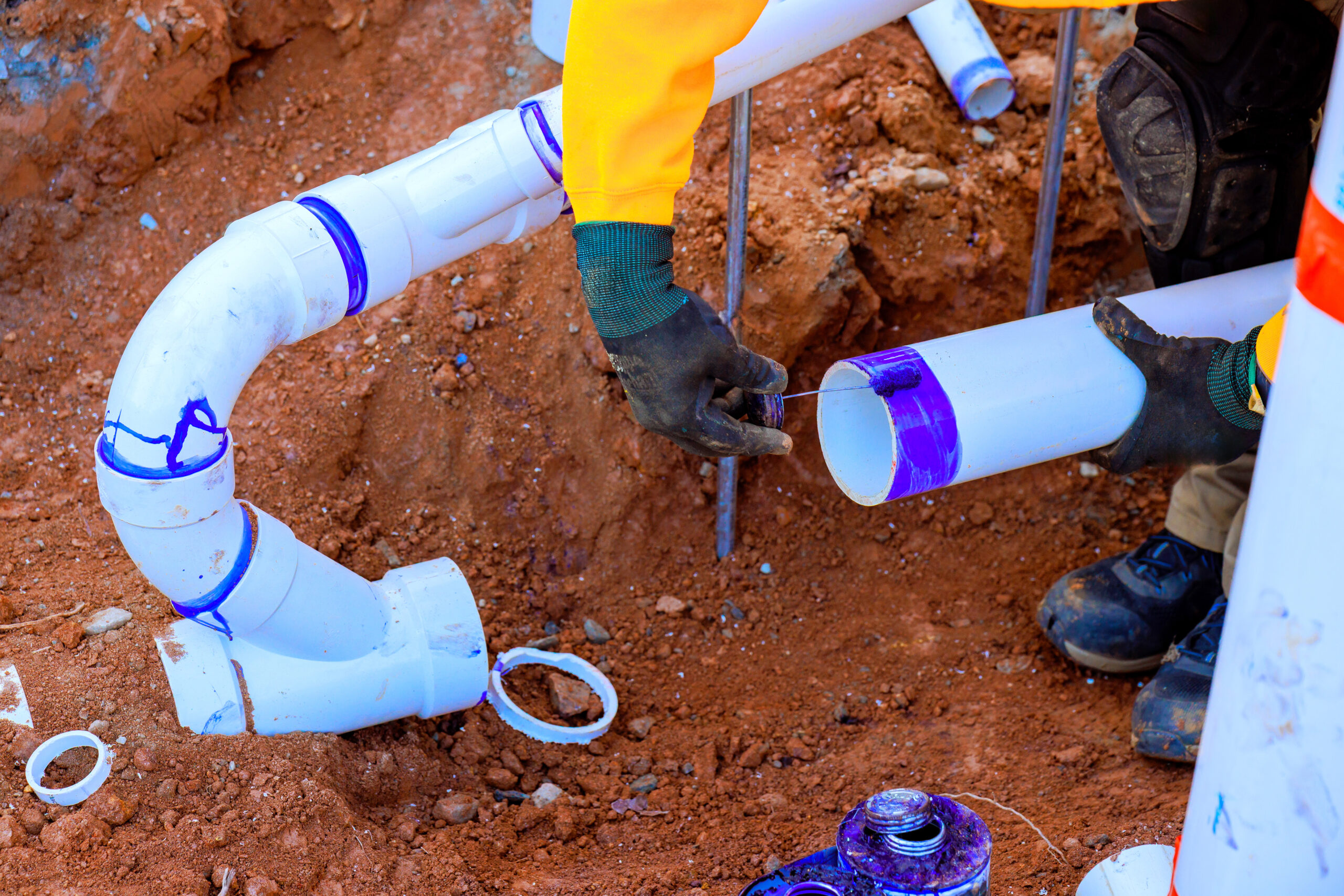
Why PVC Is the Most Common Sewer Line Material for Homes
PVC (Polyvinyl Chloride) is the most widely used material in residential sewer line installations today – and for good reason. It’s durable, lightweight, cost-effective, and meets or exceeds most local plumbing codes. Many professionals consider PVC to be the best sewer line material.
Homeowners appreciate that PVC pipes are corrosion-resistant, have a smooth interior to reduce clogs, and can last upwards of 100 years when installed properly. PVC is ideal for traditional open-trench installations and performs well in most soil types. However, like any sewer line, it does require proper bedding and slope to prevent sagging or stress fractures over time.
Best for: Most standard yard-to-street sewer replacements and new home installations.
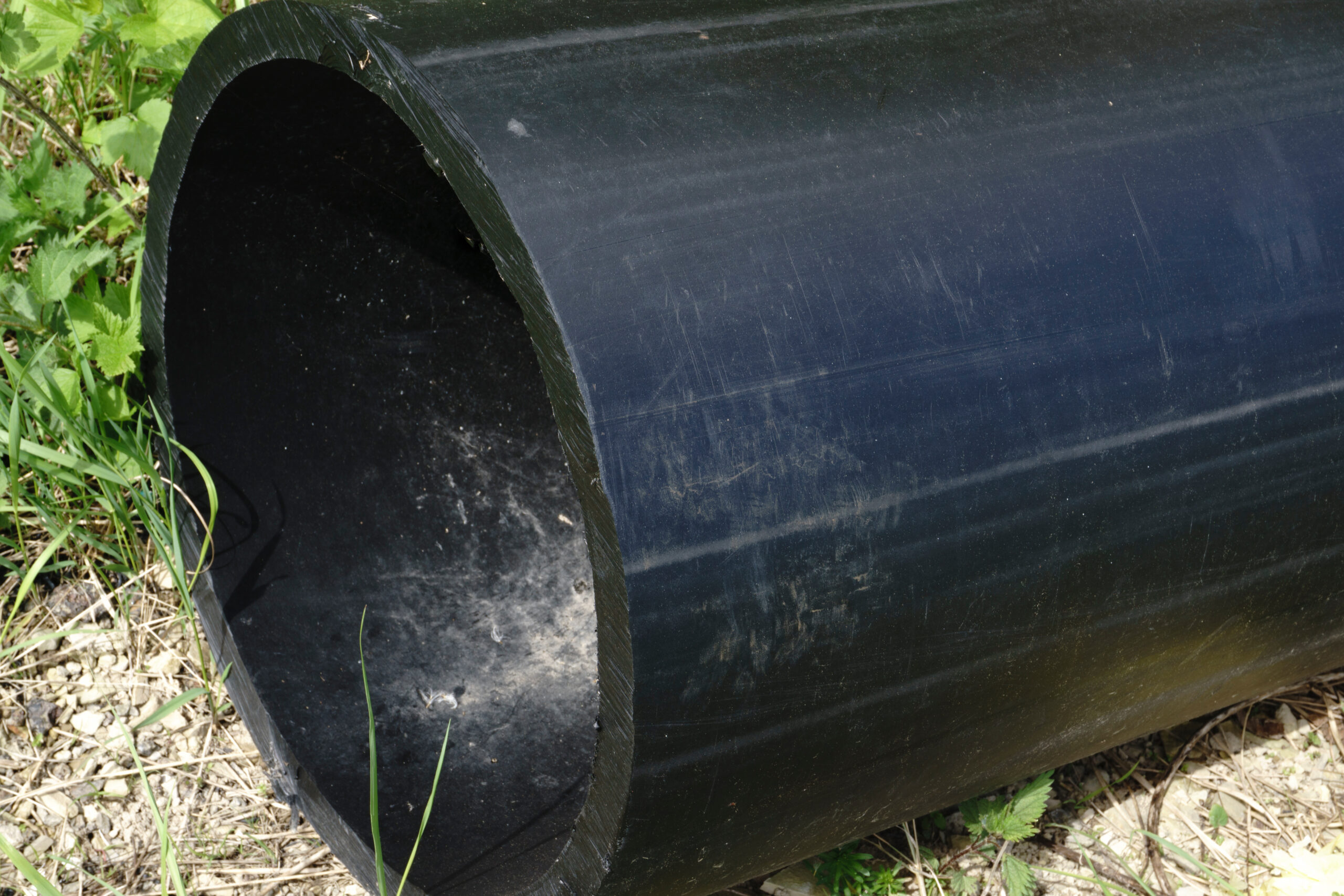
When to Use HDPE for a Sewer Line Replacement
HDPE (High-Density Polyethylene) is a rising star of sewer line materials, particularly for homeowners opting for trenchless methods like pipe bursting or directional drilling. What sets HDPE apart is its flexibility, chemical resistance, and seamless installation – its pipes are heat-fused together, eliminating joint leaks.
This material handles soil movement better than rigid pipes and can last over 100 years with very little maintenance. While HDPE comes at a higher upfront cost than PVC, its resilience and performance in trenchless jobs make it a good long-term value.
Best for: Trenchless sewer line replacements, unstable soil areas, or properties where excavation is difficult or expensive.
Disclaimer: At Mattioni, we don’t directly provide trenchless services.
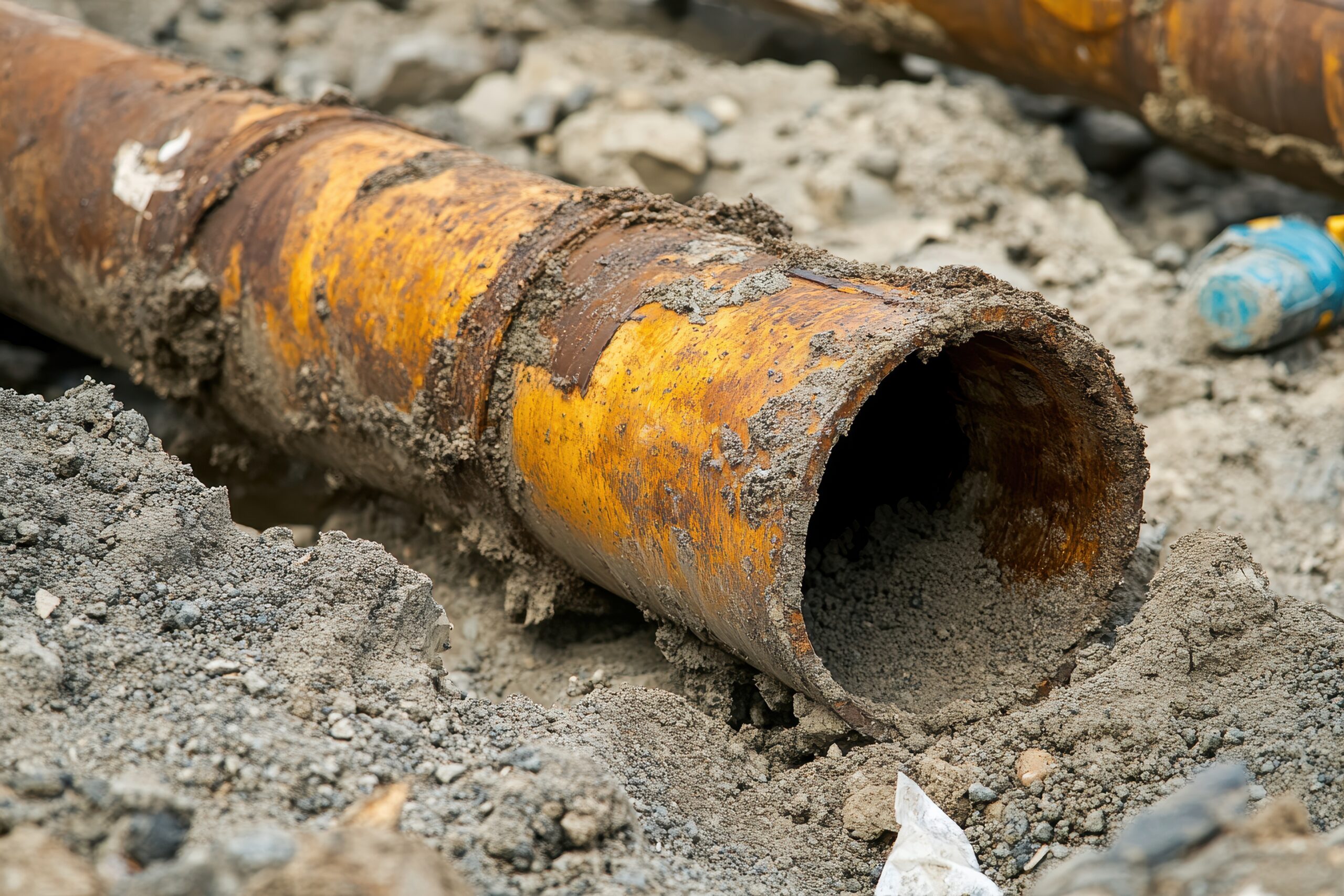
Is Cast Iron Still a Good Choice for Sewer Lines in 2025?
Cast iron was the gold standard in sewer lines for decades and is still used in specialized contexts today. Its heavy-duty construction makes it ideal for applications where the pipe must support weight, especially beneath driveways or foundations. It also offers superior sound dampening, which makes it appealing in multi-story homes or dense urban environments.
Best for: High-load areas (driveways, footings) or noise-sensitive interiors.
Outdated Options: What to Avoid in 2025 and Beyond
Some legacy materials may still be found in existing systems but shouldn’t be used in new installations today.
- Clay tile: Once popular, clay pipe is brittle and prone to cracking and root invasion. It may still exist in older homes, but replacement is strongly recommended.
- ABS: This black plastic pipe is still code-compliant in some regions but is largely phased out for sewer lines. It’s more prone to warping and lacks the long-term performance and versatility of PVC or HDPE.
Modern homeowners deserve materials that meet today’s standards for durability, safety, and efficiency. These outdated options fall short in all three areas.
How to Choose the Right Sewer Line Material for Your Home
Every home has different needs, which means there’s no one-size-fits-all answer – but the right material makes a big difference in performance, longevity, and overall cost.
PVC remains the most popular choice for good reason – it’s reliable, affordable, and ideal for traditional trench installations. If your project involves digging and you’re working with stable soil, this is likely your best fit.
HDPE is a good choice for trenchless jobs or where flexibility and soil movement resistance matter most. Although more expensive up front, it often saves money and headaches in the long run, especially in challenging environments.
Cast iron still has its place, but only for specialty use. It’s strong and quiet, but too expensive and cumbersome for most full-line replacements.
Before committing to any one material, have your plumbing contractor assess your yard layout, soil conditions, and access points. Making the right call today will prevent unnecessary repairs tomorrow.
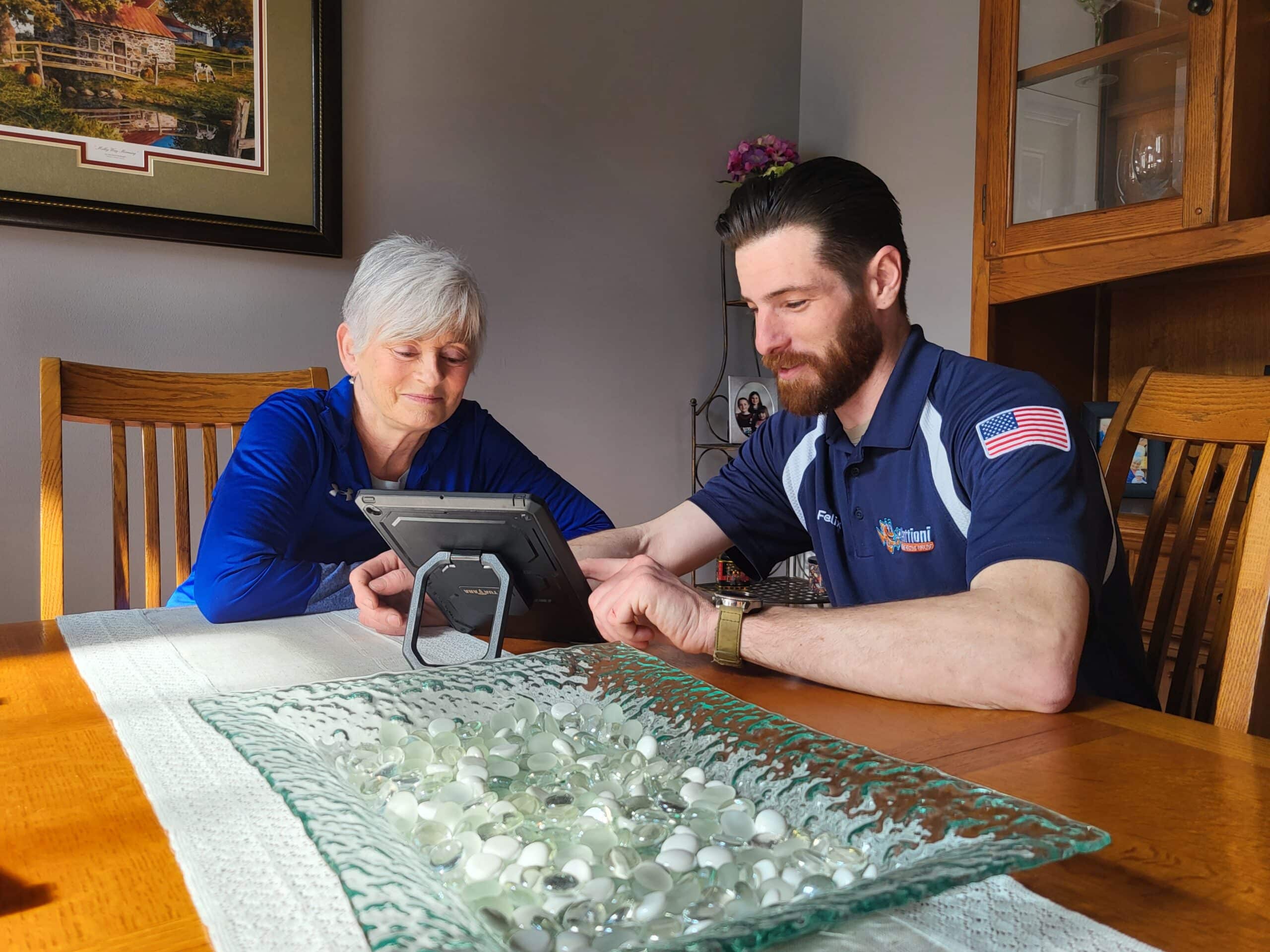
Mattioni’s Experts Can Help Guide You
There’s a lot riding on your sewer line replacement – it’s not just another home repair, it’s a foundational investment in the long-term health of your property. Now that you’ve seen how each material performs in the real world, you’re in a position to make a decision based on facts – not guesswork.
Many homeowners are surprised at how small installation details – like the slope of the yard, the condition of existing lines, or local soil composition – can completely change what the most suitable material looks like for them. That’s why partnering with a team that understands these variables can save you time, money, and future frustrations.
At Mattioni, we’ve helped homeowners like you navigate this exact choice for more than 75 years. Our licensed professionals don’t just install sewer lines – we’ll educate you on your options, explain what will work best for your specific property, and deliver work that stands the test of time.
Don’t wait – get the right material the first time – with expert help from a plumbing team you can trust. Book a consultation with Mattioni online or by calling (610) 400-8510 and take the guesswork out of your sewer line replacement.

